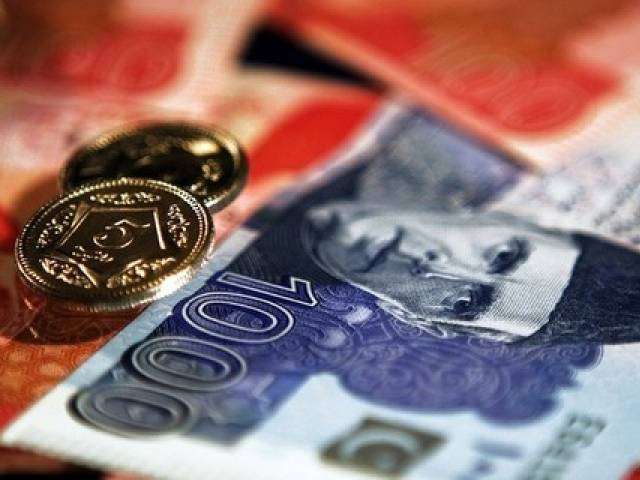Budget deficit swells to seven-year high of 1.4%
Gap increases due to fall in revenues, despite curtailing development spending

Gap increases due to fall in revenues, despite curtailing development spending. PHOTO SOURCE: BLOOMBERG
The overall budget deficit - the gap between income and expenditures - stood at roughly 1.35% of Gross Domestic Product or about Rs450 billion during the July-September quarter of this fiscal year, according to sources in the Ministry of Finance.
Govt shows Rs212b statistical error to cut budget deficit
The target was missed despite massively curtailing federal development spending, which remained around Rs47 billion - even lower than the previous year’s first quarter level, and only 6% of the annual allocation.
The budget deficit of 1.4% of GDP was the highest level recorded in the past seven years, since in 2010-11 the budget deficit in the first quarter was 1.6% of GDP. That year, annual budget deficit had remained at 6.6% of the GDP.
The budget deficit was roughly 0.4% or Rs125 billion more than the first quarter target, said sources. However, due to dismal results, the Ministry of Finance remained tight-lipped and did not comment on the development.
For the current fiscal year, the annual budget deficit target is 3.8% of GDP or Rs1.276 trillion. The first-quarter trend shows that the government will miss the goal by a wide margin, which will further increase its reliance on borrowings to meet the expenses. The fiscal consolidation remained the hallmark of the three-year $6.2 billion IMF programme that ended in September this year, although some questioned the authenticity of the official data.
The top IMF executives, including Managing Director Christine Lagarde, have recently advised the government to consolidate hard-earned gains of the past three years.
Pakistan's performance improves, budget deficit at 1.7%
The overall deficit swelled to over Rs450 billion despite the four provinces generating cash surplus of over Rs109 billion, said sources. The provincial surpluses were more than the government’s expectations.
The sources said that the main reason for missing the first quarter target was shortfall in tax and non-tax revenues. The Federal Board of Revenue (FBR) missed its target by Rs60 billion and collected only Rs626 billion, adding about 0.2% of the GDP in the deficit. The will to reform the FBR is missing, which may further compound government’s fiscal woes, said sources.
Similarly, the United States also did not reimburse Coalition Support Fund (CSF) money during the first quarter. The third main reason was lower-than-expected profits generated by the State Bank of Pakistan. Against hopes of getting over Rs70 billion, the central bank gave around Rs40 billion in the first quarter, said sources. The SBP’s profits plunged due to low interest rates.
The government’s tax and non-tax revenue receipts are likely to remain low this year as well. The FBR is set to miss its annual target of Rs3.621 trillion by a wide margin. The United States has also budgeted about $900 million in CSF payments to Pakistan as against the government’s figure of $1.6 billion.
The sources said that interest payments and defence spending was broadly on track. However, the government issued a supplementary budget despite a decision by the Supreme Court of Pakistan that barred it from taking fiscal decisions without prior approval of the federal cabinet.
The Supreme Court of Pakistan on Friday rejected the federal government’s review petition against the court’s verdict that curtailed the premier’s discretionary powers in fiscal matters. The prime minister is not constitutionally mandated to authorise expenditures on his own, and all discretionary spending without the prior approval of the cabinet is contrary to law, according to a judgment of the apex court.
In order to fill the burgeoning gap between expenditures and income, the federal government borrowed Rs429.7 billion from banks for budgetary support during the first quarter, according to central bank’s statistics. In addition to that, it obtained about Rs103 billion external loans for budgetary support.
Published in The Express Tribune, November 5th, 2016.
Like Business on Facebook, follow @TribuneBiz on Twitter to stay informed and join in the conversation.



















COMMENTS
Comments are moderated and generally will be posted if they are on-topic and not abusive.
For more information, please see our Comments FAQ